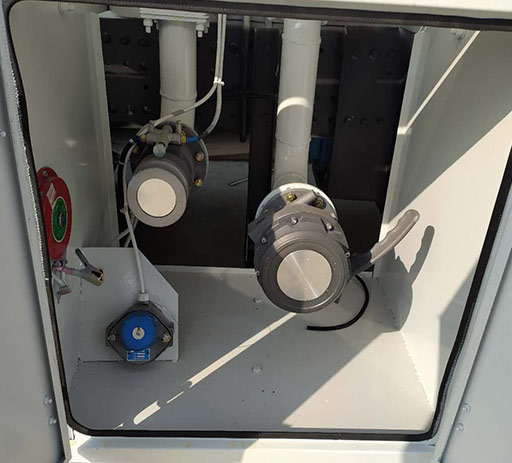Understanding World Manufacturer Identification: A Comprehensive Guide
Introduction
The world of manufacturing is vast and complex, comprising countless companies that produce everything from simple household items to cutting-edge technology. One essential aspect of navigating this landscape is understanding World Manufacturer Identification (WMI). WMI helps identify manufacturers across different industries, ensuring quality and authenticity in products. In this article, we will delve deep into WMI, covering its significance, how to identify manufacturers, and practical examples to enhance your understanding.
What is World Manufacturer Identification?
World Manufacturer Identification (WMI) is a systematic method of recognizing manufacturers globally. It primarily serves the automotive industry, allowing for the differentiation of vehicles and components from various manufacturers. The WMI is a vital component of the Vehicle Identification Number (VIN) system, which is used to track vehicles throughout their lifecycle.
History of WMI
The concept of manufacturer identification dates back several decades, but it gained prominence in the automotive sector in the 1980s with the standardization of VINs. This system was created to prevent fraud and improve safety, leading to better regulatory compliance.
Importance of WMI

- Facilitates Global Trade: WMI helps importers and exporters quickly identify manufacturers, enhancing trade efficiency.
- Improves Safety: By identifying manufacturers, authorities can track recalls and safety issues more effectively.
- Enhances Quality Control: OEMs (Original Equipment Manufacturers) can ensure quality by verifying the identity of suppliers.
Components of World Manufacturer Identification
A WMI typically comprises several elements, including the following:
| Component | Description |
|---|---|
| WMI Code | Unique identifier assigned to manufacturers, usually consisting of three characters. |
| Manufacturer Name | The official name of the company or brand associated with the WMI. |
| Country of Origin | The nation in which the manufacturer is based or registered. |
| Vehicle Type | The types of vehicles for which the manufacturer is responsible. |
How to Find World Manufacturer Identification Codes
Finding WMI codes can often seem daunting, but there are several useful resources and methods available:
Online Databases
Several online platforms provide access to WMI databases. Websites such as the National Highway Traffic Safety Administration (NHTSA) and the World Manufacturer Identifier Association are excellent starting points for locating WMI codes.
Manufacturer Websites
Most manufacturers will list their WMI codes within their technical documentation or website. Checking the manufacturer’s official site can yield accurate information.
VIN Decoding Tools
There are numerous online VIN decoding tools that can provide you with WMI information simply by entering the full VIN.
Examples of World Manufacturer Identification in Action

To better understand WMI’s application, consider the following examples:
Example 1: Automotive Sector
In the automotive world, each car manufacturer is assigned a unique three-character WMI code. For instance, the WMI code “1G1” represents General Motors’ Chevrolet division. This code is used in all Chevrolet vehicles, allowing for easy identification.
Example 2: Electronics Manufacturing
In electronics, companies like Apple use WMI equivalents for components they produce. For instance, the WMI code “C3B” may refer to a specific component produced by Apple, helping suppliers and retailers verify its authenticity.
Example 3: Aerospace Industry
In the aerospace field, manufacturers like Boeing have specific WMI codes to identify their parts distinctly. This is crucial for compliance and safety within the aviation sector, where part integrity is non-negotiable.
Practical Tips for Businesses Using WMI
For businesses navigating the world of manufacturing, here are some practical tips regarding WMI:
Conduct Thorough Research
Always verify the WMI code of your suppliers. Use multiple sources to confirm their legitimacy. This diligence can prevent counterfeit products from entering your supply chain.
Keep Updated Records
Maintain an up-to-date database of your manufacturers and their WMI codes. Regular updates can help you stay aware of any changes in manufacturer statuses or codes.
Educate Your Team
Ensure that your team understands the significance of WMI. Conduct training sessions to make your staff aware of how to utilize WMI codes in their daily tasks, from procurement to quality control.
World Manufacturer Identification vs. Global Trade Item Number (GTIN)
While WMI is significant, it is essential to understand how it differs from other identification systems, such as the Global Trade Item Number (GTIN).
WMI vs. GTIN
| Aspect | World Manufacturer Identification (WMI) | Global Trade Item Number (GTIN) |
|---|---|---|
| Usage | Mainly in the automotive industry. | Used for tracking trade items globally. |
| Structure | Consists of a 3-character code. | Can be 8, 12, 13, or 14 digits long. |
| Purpose | Identifies manufacturers and their products. | Identifies products for retail and inventory purposes. |
The Future of World Manufacturer Identification
The landscape of manufacturing is rapidly changing, with more emphasis on technology and global trade. Here are some trends influencing the future of WMI:
Adoption of Blockchain Technology
Blockchain technology is being explored for improving the verification of manufacturers. By creating a secure and immutable record of manufacturers, it enhances transparency and trust.
Integration with IoT
With the rise of the Internet of Things (IoT), manufacturers are incorporating WMI into connected devices. This can aid in real-time tracking and monitoring of products throughout their lifecycle.
Frequently Asked Questions (FAQs)

What is a WMI code?
A WMI code is a three-character identifier that represents a specific manufacturer in the automotive industry. It is part of the Vehicle Identification Number (VIN).
Why is WMI important for consumers?
WMI is essential for consumers as it helps identify the manufacturer of a vehicle, ensuring authenticity and safety in the products they buy.
How can I verify a WMI code?
You can verify a WMI code through online databases, official manufacturer websites, or VIN decoding tools available on various automotive sites.
Is WMI only applicable in the automotive industry?
No, while WMI is most recognized in the automotive sector, the principles of manufacturer identification can apply to various industries, including electronics and aviation.
What are the consequences of using counterfeit WMI codes?
Using counterfeit WMI codes can lead to legal repercussions, safety issues, product recalls, and damage to brand reputation.
Can WMI codes change?
Yes, manufacturers can experience changes due to restructuring, mergers, or compliance issues. Keeping up with these changes is crucial for businesses.
